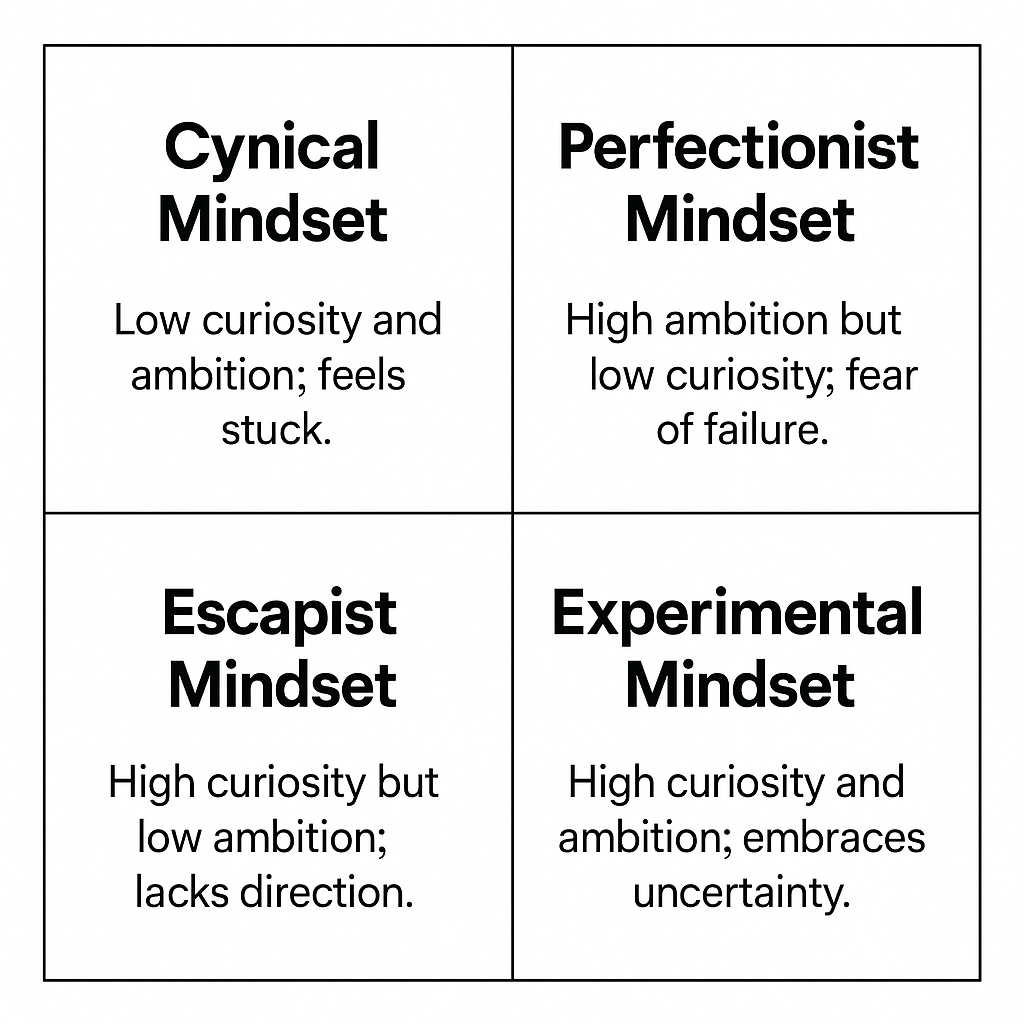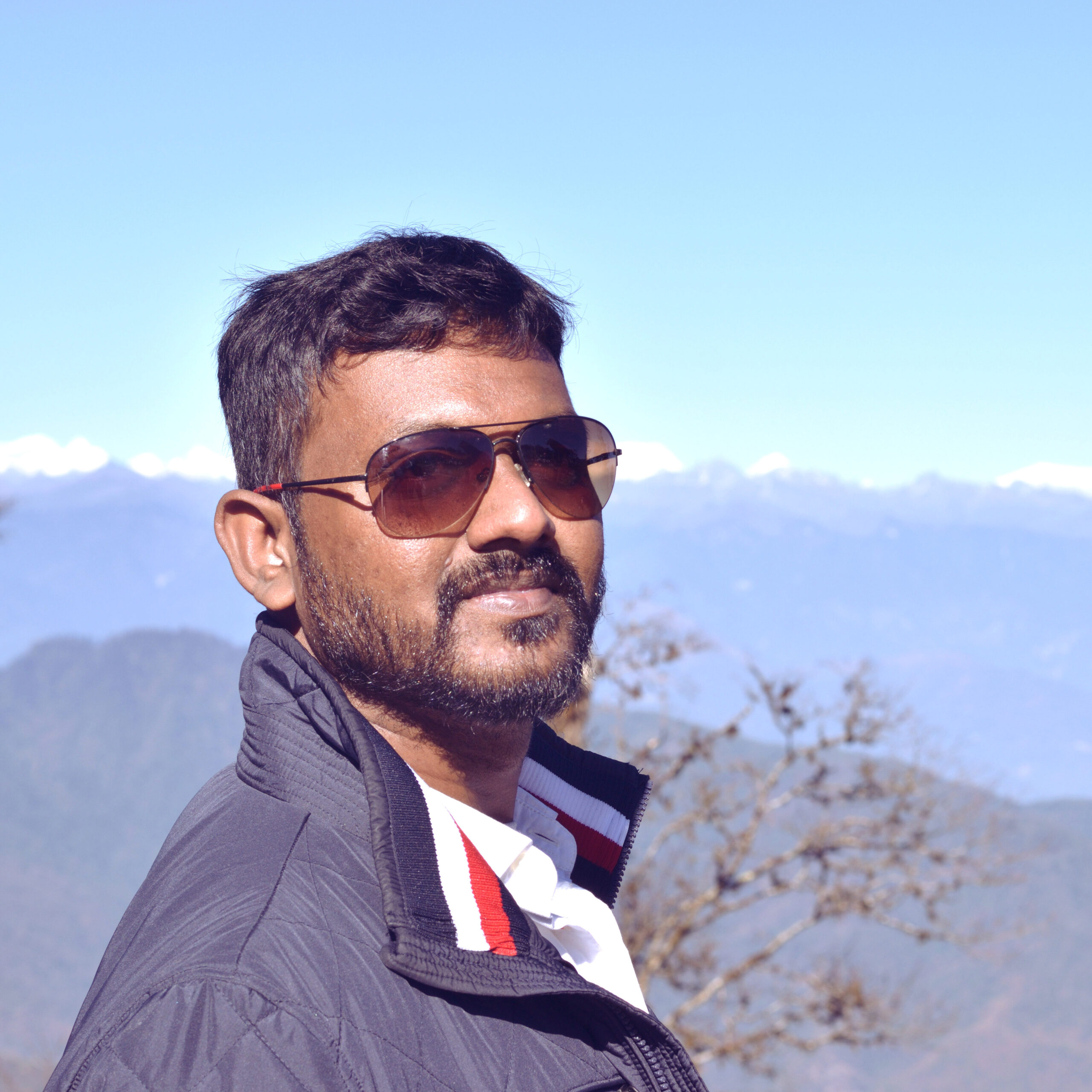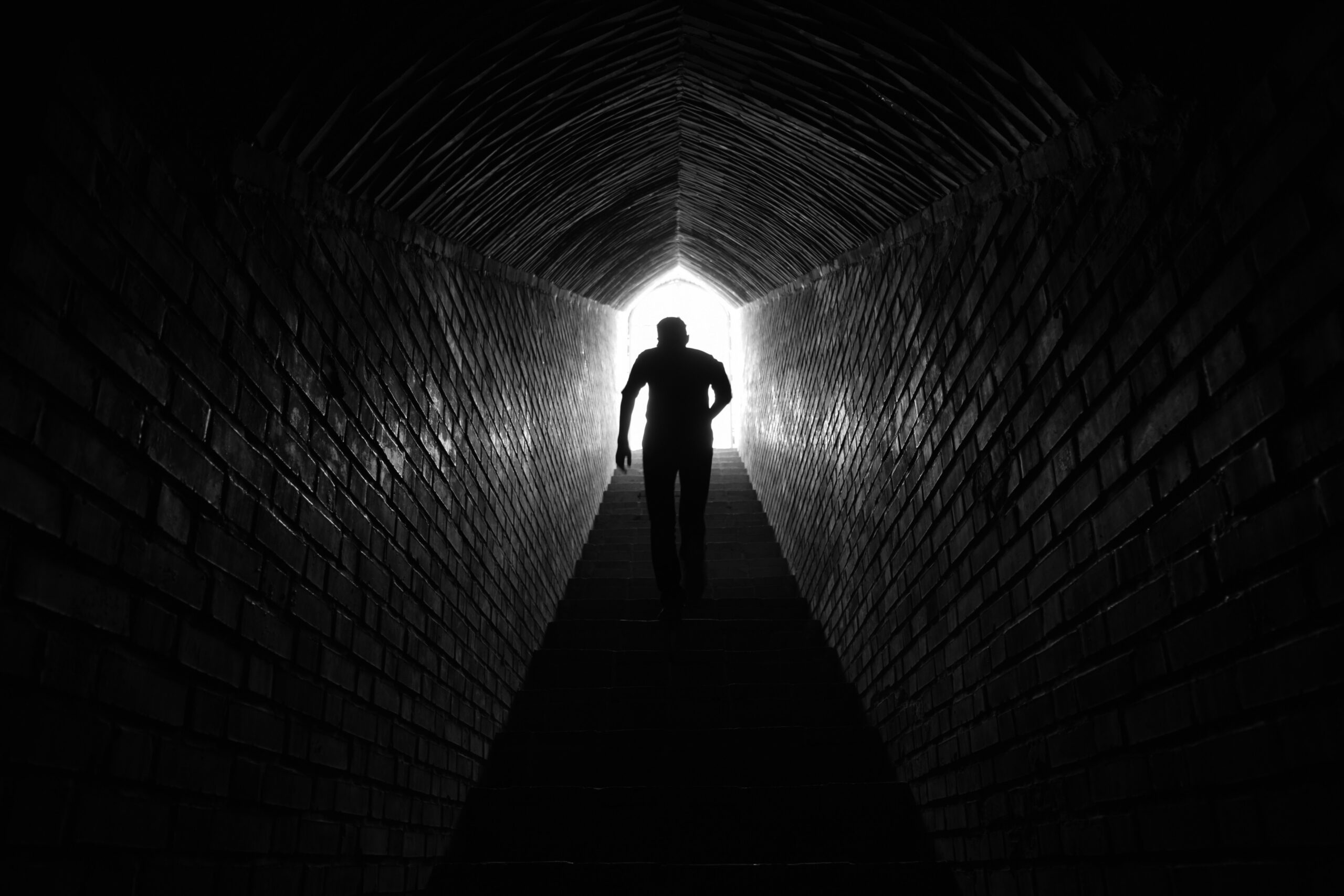In our fast-paced, goal-oriented society, many of us find ourselves grappling with cognitive overload. The pressure to constantly achieve and the relentless pursuit of success can lead to burnout and dissatisfaction. Neuroscientist Anne-Laure Le Cunff sheds light on this phenomenon and offers a refreshing perspective on personal growth through the lens of mindset and experimentation. In this post, we’ll explore the concept of mindset, the different types of mindsets, and how we can cultivate an experimental mindset to foster curiosity and fulfillment in our lives.
Understanding Mindset
At its core, a mindset is a set of beliefs or attitudes that shape how we perceive and respond to challenges and opportunities. Our mindset influences our behavior, motivation, and ultimately, our success. Psychologist Carol Dweck famously categorized mindsets into two types: the fixed mindset and the growth mindset. While a fixed mindset believes that abilities and intelligence are static, a growth mindset embraces the idea that we can develop our skills through effort and learning.
However, Le Cunff expands on this idea by introducing the concept of the “experimental mindset.” This mindset encourages individuals to approach life with curiosity and a willingness to explore, rather than being solely focused on outcomes. It allows us to view challenges as opportunities for learning rather than obstacles to success.
Types of Mindsets
Le Cunff identifies three subconscious mindsets that can hinder our happiness and personal growth:
- The Cynical Mindset: Characterized by low curiosity and ambition, individuals with this mindset often feel stuck and disengaged. They may struggle to find motivation and may view the world through a pessimistic lens.
- The Escapist Mindset: This mindset features high curiosity but low ambition. Individuals may be eager to explore new ideas and experiences but lack the drive to pursue meaningful goals. This can lead to a sense of aimlessness.
- The Perfectionist Mindset: Those with a perfectionist mindset possess high ambition but low curiosity. They set lofty goals and strive for excellence but often become paralyzed by the fear of failure, leading to stress and burnout.

In contrast, the Experimental Mindset combines high curiosity and ambition. It encourages individuals to embrace uncertainty, take risks, and view failures as valuable learning experiences. This mindset fosters resilience and adaptability, essential traits in today’s ever-changing world.
Cultivating an Experimental Mindset
To cultivate an experimental mindset, we can start by reframing our approach to personal growth. Here are some practical steps to help you embrace this mindset:
- Start with Tiny Experiments: Instead of setting grand, overwhelming goals, focus on small, manageable experiments. These could be as simple as trying a new hobby, exploring a different perspective, or engaging in a new social activity. The key is to prioritize curiosity and enjoyment over perfection.
- Make Pacts: Create small, actionable commitments to run your tiny experiments over a set duration. These pacts can help you stay accountable and focused on the process of learning rather than the outcome. For example, commit to reading one new book each month or trying a new recipe every week.
- Track Your Progress: Keep a journal to document your feelings and experiences during your experiments. Reflect on what you learn about yourself and how you respond to challenges. This practice of self-anthropology can provide valuable insights into your motivations and desires.
- Embrace Failure: Shift your perspective on failure. Instead of viewing it as a setback, see it as an opportunity to learn and grow. Analyze what went wrong and how you can adjust your approach in future experiments.
- Practice the Triple Check: When you find yourself procrastinating or feeling resistant to a task, use the “triple check” method to diagnose the underlying reasons. Ask yourself if your doubts stem from rational concerns (head), emotional resistance (heart), or practical limitations (hand). This self-reflection can help you address the root causes of your hesitations.
Conclusion
In a world that often prioritizes productivity and achievement, embracing an experimental mindset can be a transformative approach to personal growth. By focusing on curiosity, small experiments, and the learning process, we can cultivate a more fulfilling and intentional life. As Anne-Laure Le Cunff suggests, let’s design our lives as a series of experiments, allowing ourselves the freedom to explore, learn, and grow without the pressure of conventional success. Embrace the journey, and you may just discover a more authentic and satisfying path forward.


Leave a Reply